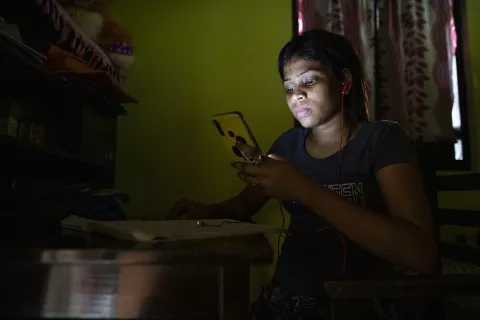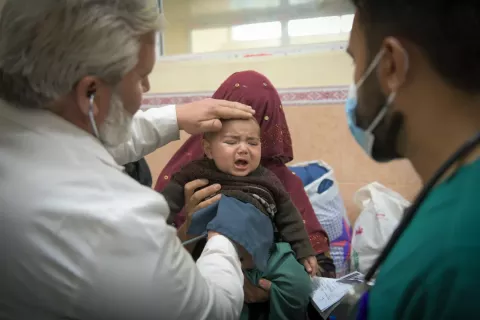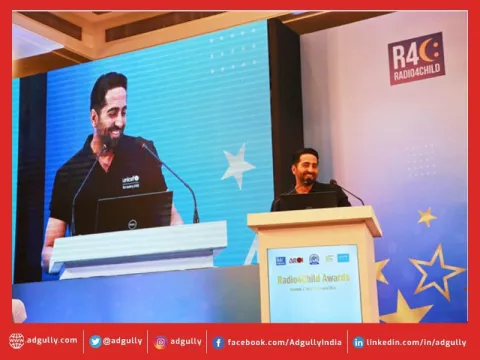Should you get your children vaccinated against COVID-19?
We answer all your queries on COVID-19 vaccination for young people

Widespread vaccination has been instrumental in helping curb the spread of coronavirus. Now that COVID-19 vaccines have reached billions of people worldwide, the overwhelming evidence confirms that vaccines offer protection against a disease that has claimed millions of lives worldwide.
The pandemic is far from over, and vaccines are our best bet on staying safe. Learn more about the significance of vaccination against COVID-19 for children between 15-18 years through these thirteen frequently asked questions.
1. Can young children be vaccinated against the COVID-19 virus?
The Government of India has extended the COVID-19 vaccination for children in the 15 to 18 age group on 3 January 2022. The Government has only approved one vaccine for this age group. The registration process remains the same as it is for adults. Visit https://www.cowin.gov.in for more.
2. If children rarely experience severe illness from COVID-19, why do they need a COVID-19 vaccine?
A COVID-19 vaccine can prevent your child from getting infected and spreading coronavirus. If your child gets infected, a COVID-19 vaccine could prevent them from becoming severely ill in subsequent exposure to COVID-19 infection.
3. Are there any children who should not get the COVID-19 vaccine?
The vaccine shouldn't be given to a child with a known history of allergic reaction to any vaccine's ingredients. For children with co-morbidities and any other current illness, consultation with their doctor to get correct guidance is essential.
4. Does the COVID-19 vaccine get a child infected from COVID-19?
No. The COVID-19 vaccines currently being developed don't use the live virus that causes COVID-19. They work on creating antibodies.

5. Does the COVID-19 vaccine affect fertility or menstruation?
There is no evidence that any COVID-19 vaccine causes infertility.
There is no direct evidence on the COVID-19 vaccine association with changes in the menstrual cycle. It is noteworthy that many factors can affect menstrual cycles, including infection, stress, sleep problems and changes in diet or exercise.
Vaccines can be administered at any time during the month, including while girls are menstruating.
6. What can my child do after getting a COVID-19 vaccine?
After being fully vaccinated, the child gets protected from severe illness and hospitalisation caused due to the coronavirus. After the vaccination, they could start doing activities that they might not have been able to do because of the threat of infection.
Remember, COVID-19 vaccination will protect most people from getting severely sick. Consult your doctor if you have questions or concerns about your child getting a COVID-19 vaccine. They might be able to help you weigh the risks and benefits.
7. Are COVID-19 vaccine side effects the same in children as adults?
Generally, yes. Your child might have mild pain and swelling where they got the injection and could feel more tired than usual. Headache, body ache, and fever and chills are also possible. These side effects usually clear up within a day or two.
8. What all activities can a child do after getting vaccinated?
Not all adolescents experience minor adverse events/side effects following vaccination.
Vaccination does not mean your children can stop following COVID-19 Appropriate Behaviour. If they do, one should avoid strenuous physical activity for at least 2-3 days post-vaccination, as your child's body needs time to recover from the vaccine's side effects. Children can read, paint, write and even attend online classes if they feel fine. Masks should be still worn in public places.
9. What are the precautions before and after the vaccination?
- Avoid getting vaccinated on an empty stomach
- Wait for 30 minutes at the vaccination site after being vaccinated
- If there is any concern during this period, consult the staff at the centre
- Even during and after vaccination, one must follow the COVID-19 Appropriate Behaviour like hand sanitisation, wearing a face mask and maintaining physical distancing.

10. What can a child do if they have side effects after getting vaccinated?
Vaccines are safe, but a child may have pain, redness and swelling at the injection site, low-grade fever, headache, generalised weakness, discomfort, etc., for two or three days after vaccination.
These are normal reactions that get better on their own. If symptoms persist, you may call the helpline number 1075 for guidance or visit the nearest government health facility for medical advice. The vaccination team must be informed about the adverse event for further reporting into the Co-WIN portal.
11. Vaccination does not prevent COVID-19 & Omicron is reportedly mild, so why vaccinate children who have had mainly mild symptoms from COVID-19?
Children have good immunity, but it varies from person to person. The vaccine protects children just like it protects everyone else from severe illness. Vaccines also ensure that children do not become super-spreaders. Children with other health conditions, such as obesity, diabetes, and asthma, might be at higher risk of serious illness with COVID-19 that can be avoided by taking the vaccine.
12. How to prepare my child for vaccination?
If your child is not too enthusiastic about getting vaccinated against COVID-19, the first step is to get them on board by talking to them. Explain to them why vaccination is a good step and how by doing this, they may save their and the lives of their near and dear ones.
Also, tell them that by vaccinating themselves, they participate in humanity’s fight against this pandemic. Make children feel a part of a huge movement and how their responsible actions can bring positive results for all, including themselves.
The earlier the pandemic gets over, the sooner they can return to their everyday lives, including going out, meeting friends, and attending schools. Let them weigh the pros and cons and nudge them towards taking a responsible decision.
13. How do we know the vaccines are safe for children?
These vaccines have received approvals after rigorous research. Experts worldwide, including doctors, scientists, and researchers at the best institutes, have worked on them. There have been no significant reported side-effects of these during the trials. By now, millions of people worldwide have taken the vaccine and proved safe.




